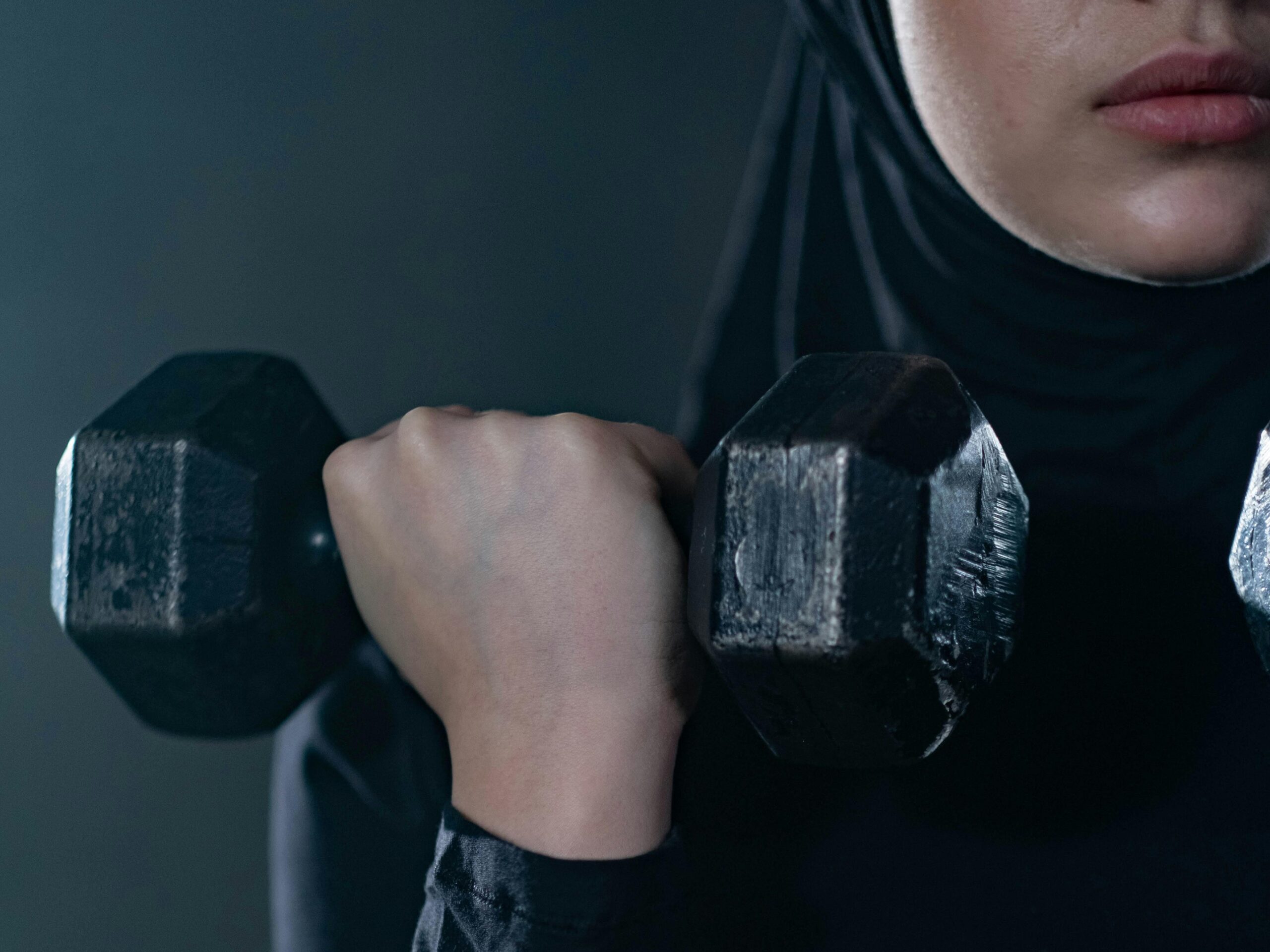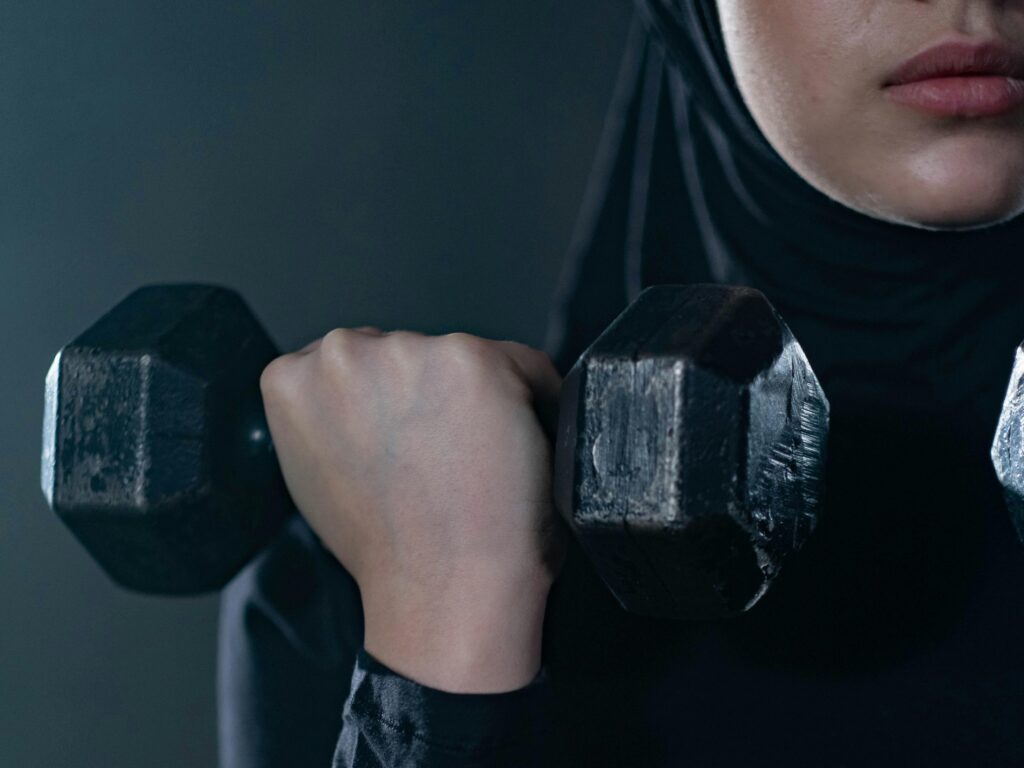
03.12.24
Healthy Habits: How to Work Out and Stay Fit During Ramadan
Ramadan, the ninth month of the Islamic Calendar, is a time of fasting, prayer and deep reflection. Beginning this year on the evening of Monday, March 11, 2024, it is a month that brings us many benefits – spiritually, mentally and physically.
With the numerous chances to earn rewards from Allah (SWT), Ramadan is the best time to work on strengthening our faith and leaving behind bad habits.
However, one healthy habit many of us struggle with maintaining and building during Ramadan is staying active.
Adjusting to a New Routine
Between the early mornings, late nights of worship, fasting, Taraweeh prayers and event invites, Ramadan can get overwhelming. This, combined with the lack of energy we can feel during the month, often becomes an excuse not to exercise. The generous spreads of food we often see at Iftar also don’t help, as it makes it easy for us to overindulge in our favourite treats.

However, it’s important to try our best to stay fit and healthy, during Ramadan. Ramadan is a month where we try to better ourselves for the sake of Allah (SWT), after all.
By looking after the body He gifted us, we’ll not only have more energy to keep up with our daily routines, but can also focus on our Ramadan activities more earnestly. So, what are the best ways to work out and stay fit during Ramadan?
Choose the Right Ramadan Workout Routine for Your Body and Needs
Staying healthy and fit doesn’t mean you need to go hard at the gym or burn a thousand calories a day. Likewise, there’s no one-size-fits-all when it comes to exercise routines. Everyone has different strengths and weaknesses. That’s why the key is to find a balance.
Keep Yourself Accountable
Ramadan is a month full of social events with family and friends. Many of us have Iftar appointments and Taraweeh times we can’t miss, which can make it hard to know when to schedule a workout in.
But, if there was any time to start being more organised, Ramadan is the best month to start. Get yourself a Ramadan calendar and stick a note on it with all the appointments you have. Mark out the times you have free and set reminders for it. Think about the type of reward you want to give yourself after your workout to make you more motivated to do it.
It also helps to let your like-minded friends and family know of your fitness plans for Ramadan. That way, you can keep each other in check and even exercise together if you both prefer.
Start Slow and Easy
No matter your fitness level, fasting during Ramadan will affect your energy levels. If you’re looking to continue or even start a workout routine for the fasting month, choosing the right exercise is key to ensuring you don’t overexert yourself.
For the first few days of Ramadan, go easy. Let your body adjust to your new energy levels. Alternate your workout days or add a rest day or two in between.
If you do regular training, continue as usual. Avoid increasing the intensity if you haven’t done it before, even if you feel like you can handle it. Your muscles may not have the energy for that additional push.
If you don’t usually work out, start slow and choose easygoing activities. Go on short walks, swim or practice meditation. Choose something that gets you moving but won’t make you out of breath.
Quality Over Quality
Once we get into a routine, it can be tempting to increase the intensity of our workout. However, Ramadan is the best time to focus on sustaining the fitness level you have rather than risk burning yourself out.
During Ramadan, we can sometimes lose muscle mass. Which, combined with low energy levels can lead to lightheadedness. One way to combat this is to eat more protein during Suhoor and Iftar.
Another is to focus on more low-intensity, low-impact workouts when exercising. These include resistance training exercises such as squats, lunges, push-ups and moderate weights, which can help maintain muscle mass.

Likewise, exercises focusing on flexibility, mobility and core training are also less cardio-intense and allow you to hone other aspects of your fitness, which will help significantly in your post-Ramadan workouts.
Exercise at the Right Time
Everyone has their favourite times to exercise and, in Ramadan, it’s not too different.
However, if you prefer exercising during the day, keep in mind that it’ll be when your energy levels are lowest. As at night, between Iftar and Suhoor, is the only time we can eat and drink during Ramadan.
If you must exercise during the day, focus on low-intensity workouts and spread them out. If you feel like a more intense workout, exercise as close to Iftar as possible. This way, you can immediately replenish your energy straightaway and won’t get too tired.
If you’re an early riser or prefer to exercise in the morning, try to get up an hour or so before Suhoor. It’s also the best time for intense workouts, as you’ll be able to replenish your energy and water levels after.
If you prefer exercising at night, you can do it straight after breaking your fast. The most important thing to remember is not to have a full meal for Iftar as your body needs time to digest the food. Having something small like dates and water or a protein bar is enough to give you the energy boost you need to exercise after fasting.
If you’re a night owl, you can exercise after Taraweeh. Just make sure to leave an hour or two to cool down post-workout before you go to sleep. Exercising gets your heart pumping, which keeps you awake. This might make it harder for you to wake up for Suhoor if you leave your workout too late.
Listen to Your Body
Between the fasting and unusual sleeping and eating times, our bodies function differently during Ramadan.
If you’re tired, you don’t have to push it. Adjust your workout routine so you can keep active without overworking your body and your time.
The most important thing is consistency. If you already work out regularly, continue to do so. If you don’t exercise regularly, Ramadan is not the time to try something new.
Take it easy and stick with what you know. Be patient and give your body time to adapt. If you’re tired, just rest or do stretching. Rest and recovery are vital too!
Last, but certainly not least, don’t forget to get enough sleep. Take regular naps if needed. As sleeping well will help your mental focus to overcome thirst and hunger and focus on getting closer to Allah (SWT).
Bonus Tip: Eat and Drink Right
There’s more to staying healthy and fit than only exercise. Eating and drinking well is also important, especially during Ramadan.
If you eat foods with enough nutrients – with plenty of complex carbohydrates, protein, fibre, vitamins and healthy fats – it gives you the fuel you need to sustain your energy throughout the day. For fasting, your acts of worship and throughout your workouts.
Resist the urge to overeat during Iftar. Remember, your brain needs 20 minutes to receive the “you are full” message from the stomach. Start off with something small to break your fast. Then, after prayer, you can slowly eat more but keep your portions small. Take time to enjoy your food. And remember to stay hydrated.
If there’s a hearty dish you really want to eat but isn’t that healthy, focus on making it a more nutritious meal. Add vegetable dishes. Pair it with your favourite meat or legume. If you’re still hungry during the night, have a light snack. Eat a light soup, which also helps you get more fluids or have hydrating fruits like watermelon after dinner.

It’s also best not to miss Suhoor. Like breakfast, eating enough and drinking enough water at Suhoor helps you stay energised throughout the day.
Ramadan gives us time to rest and strengthen our mind and body. It improves our self-discipline and control. It brings a lot of spiritual awareness to purify the mind and body. Throughout the month we practice patience, empathising with those who are living in hunger and poverty, and draw closer to Allah (SWT)
With all the benefits that come during Ramadan, fasting shouldn’t prevent you from doing any workout. As long as you listen to your body and its capabilities, you can stay active and fit during the month.
Don’t push too hard, but don’t take it too easy either. Focus on exercising with the best results in mind and hone your strengths. May Allah (SWT) keep us steadfast in our worship and health during this blessed month, ameen!
